Diesel Generator Buying Guide: How to Navigate Lead Time Challenges
Getting a diesel generator isn’t always as simple as just buying one. Sometimes, you have to wait for it. This waiting period is called “lead time.” It can be a real headache, especially if you need power sooner rather than later. This guide will walk you through everything you need to know about lead time diesel generators, from figuring out what you need to finding the right supplier and even what to do while you wait.
Key Takeaways
- Lead time is the time it takes to get your generator after you order it.
- Many things can make lead times longer, like problems with parts or shipping.
- Knowing your power needs helps you pick the right generator and avoid delays.
- Planning ahead and looking at different options can help you get a generator faster.
- Good maintenance keeps your generator working well for a long time.
Understanding Lead Time Diesel Generators
Defining Lead Time for Diesel Generators
Lead time, in the context of diesel generators, refers to the period between placing an order and receiving the generator. It’s not just about shipping time; it encompasses manufacturing, assembly, testing, and any pre-delivery preparations. Understanding this timeframe is important for project planning. Lead times can vary significantly based on generator size, customization, and supplier workload.
Factors Influencing Diesel Generator Lead Times
Several factors can affect how long it takes to get your diesel generator. These include:
- Customization: Highly customized generators naturally take longer to produce than standard models.
- Generator Size and Capacity: Larger, more complex units often have longer lead times due to increased manufacturing complexity.
- Supplier Backlog: A supplier with many existing orders will likely have longer lead times.
- Component Availability: Shortages of specific parts can delay the entire production process.
Unexpected events, like a sudden surge in demand or disruptions in the supply chain, can also extend lead times. Staying informed about market conditions can help you anticipate potential delays.
Impact of Supply Chain on Diesel Generator Availability
The global supply chain plays a big role in diesel generator availability. Disruptions, such as material shortages or logistical bottlenecks, can significantly extend lead times. For example, a shortage of specific electronic components or delays in fast delivery industrial generators can halt production. Monitoring the supply chain and choosing suppliers with robust supply networks can help mitigate these risks. Consider these points:
- Raw Material Availability: Access to steel, copper, and other raw materials is crucial.
- Component Manufacturing: The availability of engines, alternators, and control panels affects production speed.
- Shipping and Logistics: Port congestion and transportation delays can add weeks to the delivery time.
It’s a good idea to ask suppliers about their supply chain management practices and contingency plans. You might also want to explore generator performance and how it is affected by the environment.
Assessing Your Power Needs for Diesel Generators
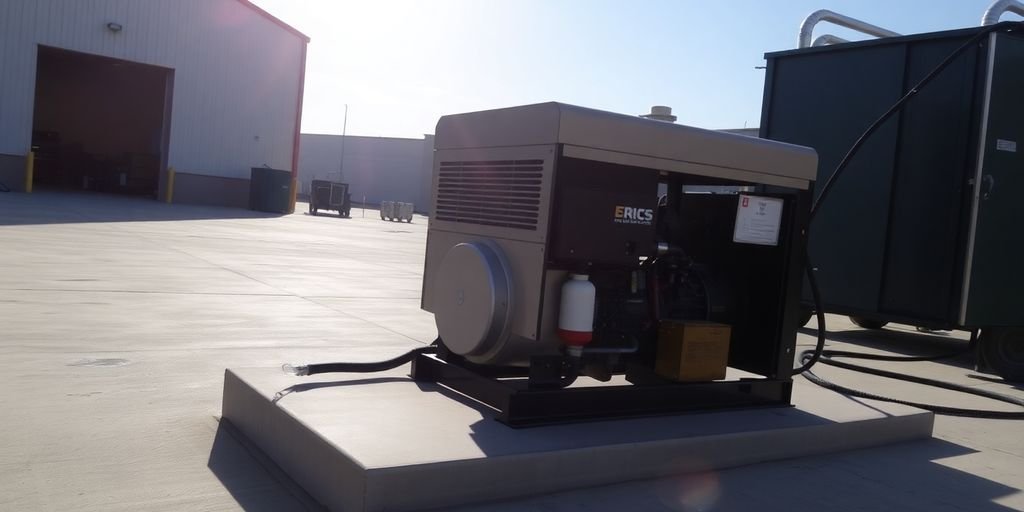
Choosing the right diesel generator isn’t just about picking a brand; it’s about understanding exactly how much power you need. Overestimating can lead to unnecessary costs, while underestimating can leave you in the dark when you need power the most. Let’s break down how to figure out your power requirements.
Calculating Required Diesel Generator Capacity
First, make a list of all the appliances and equipment you want to run with the generator. Note the wattage of each item; this is usually found on a sticker on the appliance itself. Don’t forget to account for starting wattage, which is often higher than running wattage, especially for motors. Add up all the running wattages, then add the highest starting wattage of any single item. This total gives you a good estimate of the generator size you need. For commercial applications, it’s often best to consult with an electrician to ensure accurate sizing.
Identifying Essential Versus Non-Essential Loads
Think about what you absolutely must have during a power outage versus what would be nice to have. Prioritize essential loads like refrigerators, medical equipment, and lighting. Non-essential loads might include things like air conditioners, entertainment systems, or electric stoves. By focusing on essential loads, you can often get away with a smaller, more affordable generator. Consider using single-phase generator for smaller power needs.
Considering Future Expansion for Diesel Generators
Think about your future power needs. Are you planning to add any new equipment or expand your operations? If so, it’s wise to choose a generator with some extra capacity to accommodate future growth. It’s better to have a little more power than you need than to be stuck with a generator that’s too small down the road. This is especially important for businesses that anticipate needing rapid deployment power solutions in the future.
Planning for future expansion is a smart move. It’s often more cost-effective to buy a slightly larger generator now than to replace an undersized one later. Consider adding about 20% to your current power needs to account for future growth. This will give you some headroom and prevent you from overloading the generator as your power demands increase.
Key Specifications for Diesel Generators
Engine Type and Performance for Diesel Generators
When you’re looking at diesel generators, the engine is everything. It’s the heart of the whole system. You need to consider the engine’s horsepower, its RPM (revolutions per minute), and its overall build quality. A more robust engine will generally last longer and handle tougher conditions. Also, pay attention to whether it’s a two-stroke or four-stroke engine, as this affects fuel consumption and maintenance needs. Don’t forget to check the engine’s compliance with emission standards, which can vary depending on your location.
Alternator Quality and Output
The alternator is what turns the engine’s mechanical energy into usable electrical power. A high-quality alternator will provide a stable and consistent output, which is important for sensitive electronics. Look for alternators with a good insulation class and a reputable brand name. The output is usually measured in kVA (kilovolt-amperes) or kW (kilowatts). Make sure the alternator’s output matches your power requirements. For example, you might need a generator size that can handle both your regular appliances and any sudden surges in power demand.
Fuel Efficiency and Tank Capacity
Fuel efficiency is a big deal, especially if you plan to use the generator frequently or for extended periods. A more fuel-efficient generator will save you money on fuel costs over time. Check the generator’s fuel consumption rate at different load levels. The tank capacity determines how long the generator can run before needing a refill. Consider how long you typically need backup power and choose a tank size that meets those needs. Some generators also offer the option of connecting to an external fuel tank for extended run times. If you need something fast, consider looking into quick ship diesel gensets.
Choosing a generator with the right fuel efficiency and tank capacity is not just about saving money. It’s also about ensuring you have a reliable power source when you need it most. A generator that runs out of fuel in the middle of an outage is useless.
Here’s a simple table to illustrate fuel consumption:
| Load Level | Fuel Consumption (Gallons/Hour) |
|---|---|
| 25% | 0.5 |
| 50% | 1.0 |
| 75% | 1.5 |
| 100% | 2.0 |
Also, consider these points:
- Check the generator’s noise level (dBA rating).
- Consider the weight and portability, especially if you need to move the generator.
- Look for features like electric remote start or automatic start.
Navigating Diesel Generator Installation and Permitting
Site Preparation for Diesel Generators
Okay, so you’ve picked out your generator. Now what? Well, before that beast even arrives, you need to get your site prepped. This means clearing the area where the generator will sit. Think of it like getting ready for a new appliance, but way bigger and heavier. Generators can weigh a lot, so make sure there aren’t any obstructions like boxes or tools in the way. A level surface is also important, especially if you’re using a pre-cast pad. Also, keep in mind:
- Accessibility for technicians is key.
- Clear any landscaping that might interfere.
- Consider a specially designed platform in coastal areas to avoid flooding.
Understanding Local Zoning and Regulations
This is where things can get a little tricky. You can’t just plop a generator down anywhere. You need to understand local zoning and regulations. These rules vary wildly depending on where you live. Some areas might have noise restrictions, while others might have rules about how far the generator needs to be from your property line. It’s a good idea to check with your local government or a professional to make sure you’re following all the rules. Here are some things to consider:
- HOA/POA approvals might be needed.
- Permits are often required for gas line work.
- Wetlands and flood zones require special attention.
Ignoring these regulations can lead to fines or even having to move the generator, so it’s worth doing your homework.
Professional Installation Considerations
While some people might be tempted to DIY the installation, it’s generally best to leave it to the pros. Diesel generators require both electrical and gas connections, and messing those up can be dangerous. Licensed contractors will ensure that everything is installed correctly and up to code. Plus, they’ll handle all the necessary permits and inspections. Think of it as an investment in your safety and peace of mind. Here’s why you should consider professional installation:
- Coordinates inspections in partnership with local authorities.
- Ensures all work complies with relevant building and electrical codes.
- Handles drawings, permit applications, and approval processes.
Choosing the Right Diesel Generator Supplier
Finding the right supplier for your diesel generator is just as important as picking the right generator itself. You’re not just buying a piece of equipment; you’re entering into a relationship that could last for years, covering everything from installation to maintenance. Let’s break down what to look for.
Evaluating Supplier Reputation and Experience
First things first, do your homework. A supplier’s reputation speaks volumes. How long have they been in business? What do their past customers say? Look for online reviews, check with industry associations, and don’t hesitate to ask for references. A long track record and positive feedback are good signs. You want a supplier who knows their stuff and has a history of keeping their promises. Experience matters, especially when dealing with complex installations or specific power needs. A supplier familiar with commercial generator applications will be better equipped to guide you.
Assessing After-Sales Support and Warranty
What happens after you buy the generator? This is where after-sales support becomes critical. Does the supplier offer installation services? What about maintenance and repairs? A solid warranty is a must, but read the fine print. What does it cover, and for how long? A good supplier will have a responsive service team, readily available to answer questions and address any issues that arise. Make sure they have readily available diesel generator parts too.
Comparing Pricing and Delivery Options
Of course, price is a factor. Get quotes from multiple suppliers, but don’t just focus on the bottom line. Consider the total cost of ownership, including installation, maintenance, and fuel efficiency. What are the delivery options? Can they meet your timeline? A cheaper generator that takes months to arrive or lacks proper support could end up costing you more in the long run.
Choosing a supplier is a long-term decision. It’s about finding a partner who can provide not just a generator, but also the expertise and support you need to keep it running smoothly for years to come. Don’t rush the process; take the time to find the right fit for your specific needs.
Here’s a quick checklist to consider:
- Years in business
- Customer reviews and references
- Warranty details
- Service and maintenance options
- Delivery timeline
Mitigating Long Lead Times for Diesel Generators
It’s no secret that waiting for a new diesel generator can be a pain. With global supply chains still recovering, lead times can stretch longer than expected. But don’t worry, there are ways to handle this and keep your operations running smoothly.
Planning Ahead for Diesel Generator Procurement
Early planning is key. Start thinking about your power needs well in advance of when you actually need the generator. This gives you time to research different models, get quotes, and factor in potential delays. Waiting until the last minute often means you’re stuck with whatever is available, which might not be the best fit for your needs. Consider these steps:
- Forecast your power requirements accurately.
- Research different generator models and suppliers.
- Obtain quotes and compare lead times.
Exploring Pre-Built or Stock Diesel Generators
Instead of ordering a custom-built generator, consider purchasing a pre-built or stock model. These are already assembled and ready to ship, significantly reducing the wait time. While you might not get all the specific features you want, a stock unit can provide a reliable power source in a much shorter timeframe. Look into commercial generator options that are readily available.
Considering Rental Options During Lead Times
If you absolutely need power immediately, renting a diesel generator is a great short-term solution. Rental units can provide the power you need while you wait for your new generator to arrive. This prevents disruptions to your business or operations. Many companies offer expedited power generation units for rent, ensuring emergency generator availability when you need it most.
Renting can also give you a chance to test different generator sizes and configurations to make a more informed decision when your permanent unit arrives. It’s a win-win!
Maintenance and Longevity of Diesel Generators
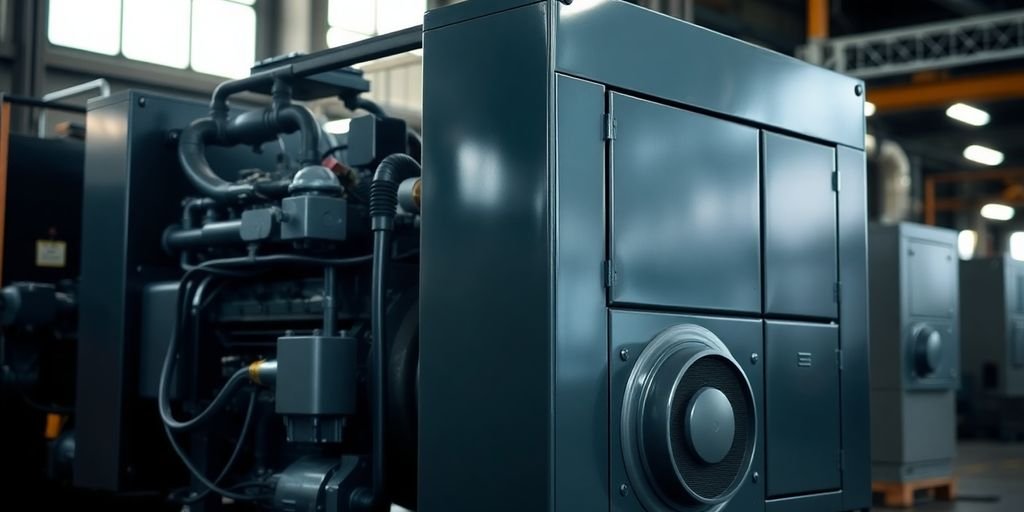
Diesel generators are workhorses, but like any machine, they need care to keep running strong for years. Neglecting maintenance can lead to unexpected breakdowns and costly repairs. Let’s talk about how to keep your generator in top shape.
Establishing a Regular Maintenance Schedule
A consistent maintenance schedule is the cornerstone of diesel generator longevity. Think of it like taking your car in for an oil change – it’s preventative care that pays off in the long run. Here’s what a typical schedule might include:
- Weekly: Check fluid levels (oil, coolant, fuel), inspect for leaks, and ensure the battery is properly charged.
- Monthly: Run the generator under load for at least 30 minutes to burn off any accumulated moisture and ensure all systems are functioning correctly. Fuel delivery components should be inspected.
- Annually: Change the oil and filters, inspect the cooling system, check the fuel lines, and have a professional perform a comprehensive inspection.
Sourcing Genuine Diesel Generator Parts
Using genuine parts is crucial when replacing components on your diesel generator. While aftermarket parts might seem like a cheaper option, they often don’t meet the same quality standards and can lead to premature wear or even damage to other parts of the generator. Always source parts from a reputable supplier or directly from the manufacturer to ensure compatibility and reliability.
Understanding Service Agreements and Contracts
Consider a service agreement with a qualified technician. These agreements often include regular maintenance, inspections, and priority service in case of a breakdown. It’s like having an insurance policy for your generator, providing peace of mind and helping to avoid unexpected costs. A good service contract should cover:
- Scheduled maintenance tasks
- Emergency repair services
- Parts replacement
- Remote monitoring (if available)
Investing in regular maintenance and quality parts is an investment in the long-term reliability of your diesel generator. It can save you money and headaches down the road by preventing costly repairs and ensuring that your generator is always ready when you need it most.
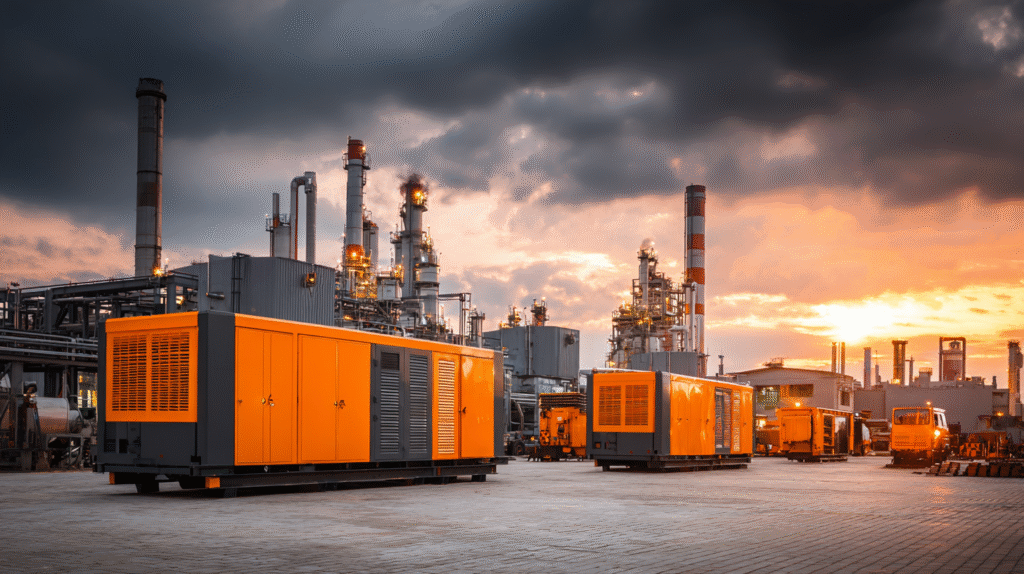
Conclusion
So, that’s the deal with diesel generators and how long it takes to get them. It’s not just about picking one out; you’ve got to think about all the steps involved, from ordering to getting it set up. Things like where you are, what kind of generator you need, and even what’s going on in the world can change how fast you get it. Planning ahead is really important here. If you know what to expect and give yourself enough time, you’ll be in a much better spot. It’s all about being ready, so when the power goes out, you’re not left in the dark.
Frequently Asked Questions
What does “lead time” mean for a diesel generator?
The “lead time” for a diesel generator is simply how long you have to wait from the moment you place your order until it actually arrives and is ready to go. It’s like waiting for a special order item; sometimes it’s quick, other times it takes a while.
What makes the lead time for a diesel generator longer?
Lots of things can make lead times longer. If there’s a big demand for generators, or if the parts needed to build them are hard to get (like during a global supply chain issue), then you’ll likely wait longer. Also, special features or custom builds can add extra time.
How do I figure out what size diesel generator I need?
You need to figure out how much power your home or business uses, especially what absolutely needs to stay on during an outage. Think about things like lights, refrigerators, and essential equipment. Don’t forget to consider if you plan to add more stuff later that will need power.
Do I need permits to install a diesel generator?
Yes, definitely! Most places have rules about where you can put a generator and what kind of permits you need. It’s super important to check with your local government or a professional installer to make sure you follow all the rules and avoid any problems.
How do I pick a good supplier for a diesel generator?
Look for a company that has a good reputation and lots of experience selling and installing generators. Make sure they offer good customer service after you buy it, like help with repairs or maintenance, and a strong warranty. Also, compare prices and how quickly different suppliers can get the generator to you.
What can I do if I need a diesel generator fast but lead times are long?
The best way is to plan way ahead! Don’t wait until you absolutely need a generator. You can also ask if suppliers have any generators already built and in stock, or consider renting a generator if you need power right away and can’t wait for a new one to be delivered.

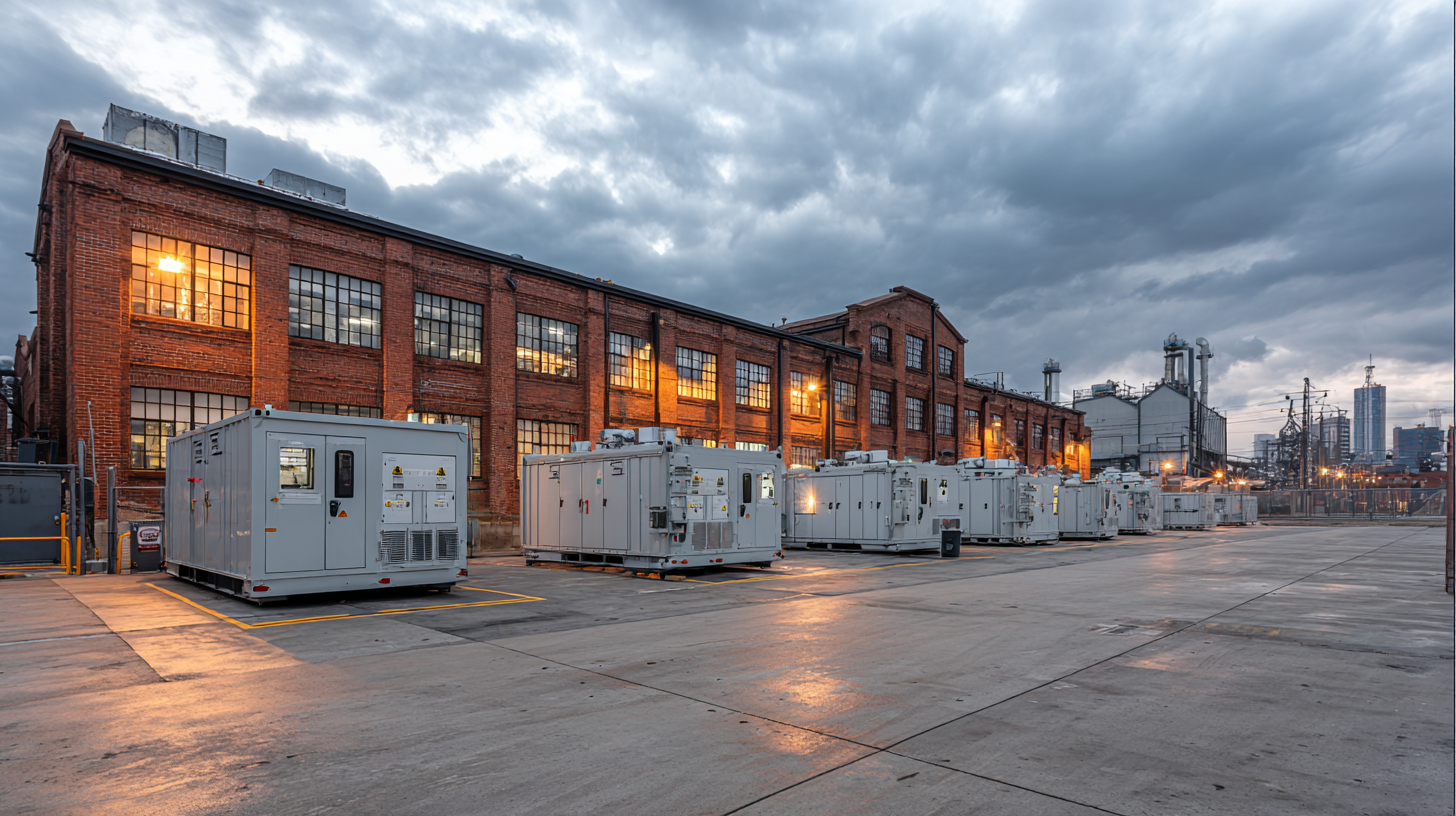

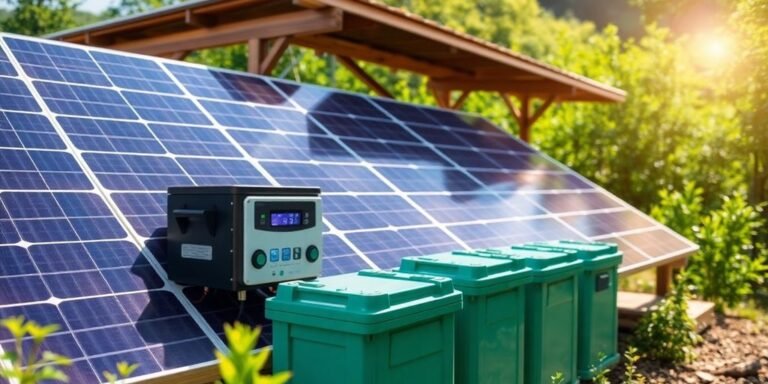


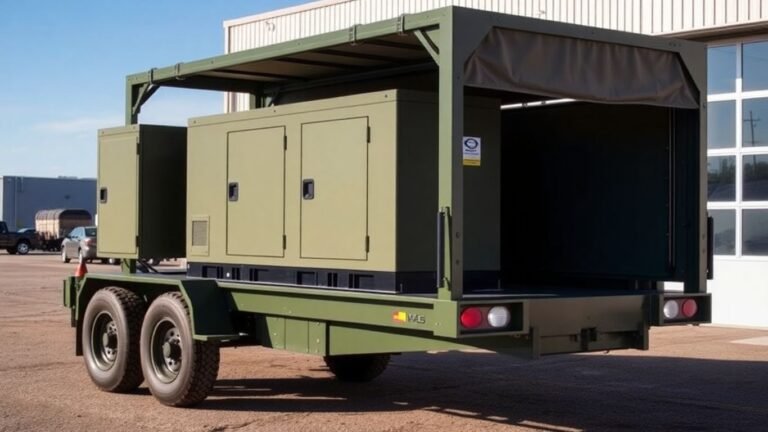
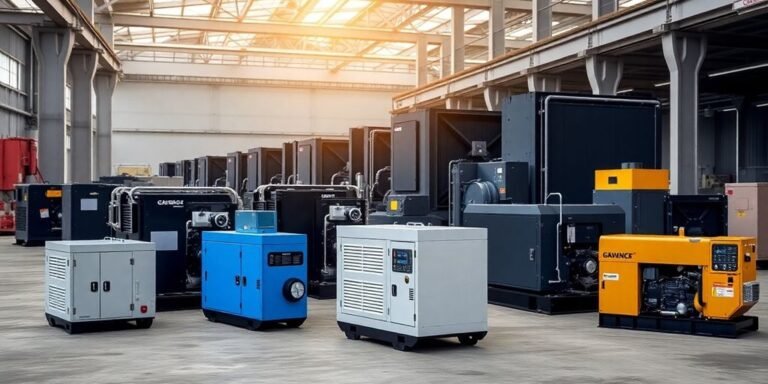

One Comment